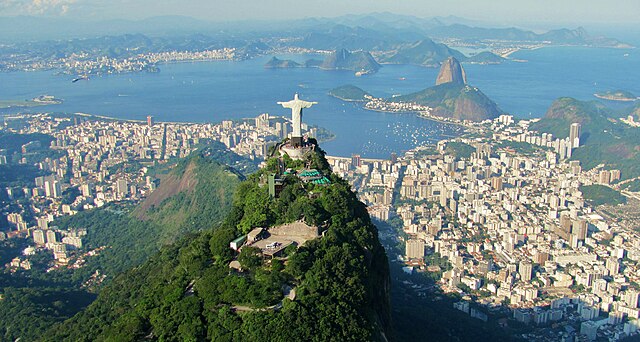
Brazil, urban agriculture and ecological management of organic waste: the “Baldinhos Revolution”
The “Baldinhos Revolution” is a socio-environmental project of urban agriculture and community management of organic waste. It is the awareness of the collection and transformation of waste into fertiliser through the composting process. It is carried out by young people in the community to improve the health of their families
The Baldinhos Revolution and Urban Agriculture project has alleviated the serious problem of disease contamination due to improper waste management
Through waste management and community composting, diseases have been reduced, streets have been sanitised and urban agriculture and community involvement encouraged.
The assisted communities live in peripheral areas of Florianópolis, where migration is very intense, concentrating a large number of families in poverty.
This process generates serious problems such as – professional disqualification; -unemployment; -low level of education; – malnutrition; – family disintegration and environmental degradation.
The work carried out by the ‘Baldinhos Revolution’ project
The methodology of this work is the result of a two-year experience, combined with the didactics of extension projects, based on certain methods indicated by Paulo Freire.
The exclusivity of this methodology is the participation of local agents from the moment the project is structured in the collection, awareness-raising and transformation of waste through composting.
The project also enhances the self-respect and self-confidence of the community (with the dissemination of the work, for example), showing the representativeness of this work and the agents who construct it in society. In short, social empowerment and autonomy of the agents is sought.
Another foundation is the comprehensive technical training of the agents, which takes place through workshops and meetings.
Articulating these foundations creates an identity in waste management in the neighbourhood, which empowers residents as community agents who pass on the technology.
Participating households receive lidded buckets for organic waste collection (the buckets are sealed to prevent contact with vectors) and, when full, take them to the PEVs (Voluntary Delivery Points), which are community-distributed favours, according to the needs of each household group.
PEVs with organic waste are collected twice a week, with four community agents and a wheelbarrow collecting the canisters.
The destination is the compost bin, where the waste is deposited in static windrows and mixed with the appropriate proportion of straw and sawdust, activating thermophilic composting.
Finally, the drums are washed to return them to the VEPs.
For these steps to occur systematically, there can be no lack of input and trained agents.
Educators, families, public managers and community workers are trained through composting and urban agriculture workshops.
After processing organic waste, fertiliser is produced and placed in community gardens and backyards, located in schools and small family-owned spaces, to plant vegetables, medicinal and ornamental plants.
This planting work is done with the help of community agents, trained by technicians from the Centre for the Study and Promotion of Group Agriculture (CEPAGRO).
The differential of this methodology is the direct and effective participation of the community.
Today, this project consolidates a way of working that has been refined over these two years by technicians, young people from the community and direct project partners.
Results achieved through the “Baldinhos Revolution”
The benefits and impacts of this project occur locally and globally.
On a local level, 100 families, approximately 500 people, four school units (schools and kindergartens), approximately 600 people including children and educators, four neighbourhood institutions that take care of children, directly benefit from the collection of organic waste.
Together, there will be about 1600 people directly benefiting.
The impacts are in the reduction of rats with the collection of organic waste and the subsequent production of fertiliser.
More or less 300 tonnes of organic waste have already been turned into fertiliser, producing organic food, medicinal and ornamental plants, used as a basis for school gardens and family backyards. Indirectly, the entire Montecristo district, with its almost 30,000 inhabitants, has benefited.
Read Also:
COP27, African Bishops: There Is No Climate Justice Without Land Justice
World Day Of The Poor, Pope Francis Breaks Bread With 1,300 Homeless People
The Future Of The Missions: A Conference For The 4th Centenary Of Propaganda Fide
Saint Of The Day For November 15: Saint Albert The Great
Grand Imam Azhar Sheikh: We Appreciate Pope Francis’ Efforts To Promote Peace And Coexistence
COP27, Religious Leaders Highlight Correlation Between Climate Change And Humanitarian Crises
Mission Lands, Pope Francis’ Horror At Violence In Northern Congo
War In Ukraine, European Bishops Call For Peace: COMECE Appeal
COP27, African Bishops Call For Climate Reparations For Vulnerable Communities
